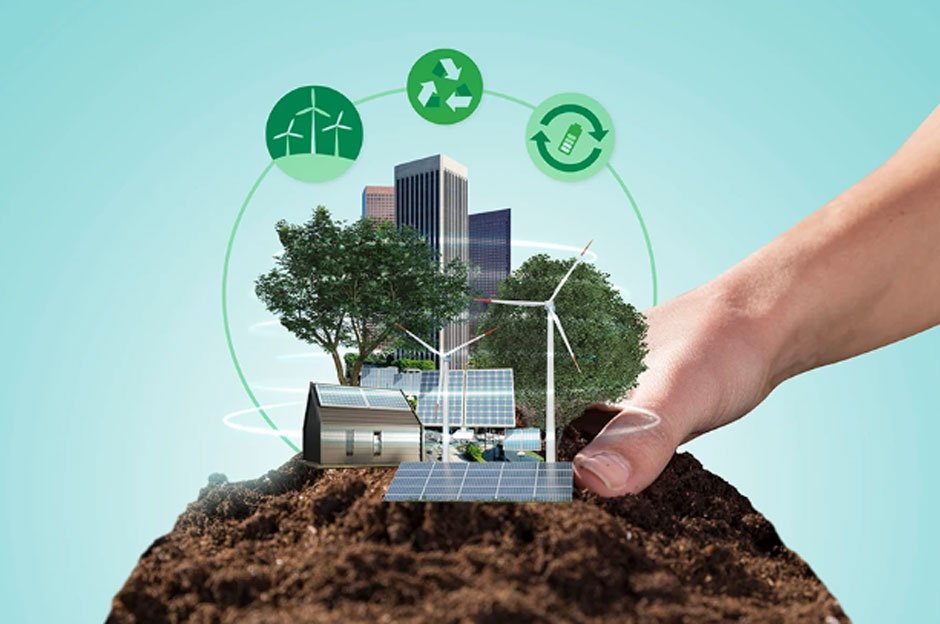How Responsible Waste Handling Builds a Greener Future

Around 2 billion tonnes of municipal solid trash are already produced yearly worldwide, and by 2050, it’s expected that waste production will have increased by means of 70%. We ought to act quickly to deal with this escalating issue. For the sake of destiny generations and the fitness of our planet, environmentally friendly rubbish disposal is crucial, notes leading Redmond Property Management company, Gregory Property Management.
Practices for sustainable waste control aim to reduce their negative outcomes on the surroundings, even as encouraging resource conservation. It covers techniques for slicing trash, raising recycling costs, and lowering disposal-associated pollutants. These methods preserve priceless natural resources that may be exhausted by ongoing production and extraction while shielding ecosystems from damaging pollution. With skip hire Orrell Wigan the aftermath of your project tidy and hassle-free, select our quick, economical, and environmentally friendly elimination of waste service.
What Are Recycling And Trash Management?
Two vital measures for preserving the environment for future generations are the handling of waste and recycling. Trash management is the process of gathering, moving, processing, and disposing of trash. The reduction, reuse, and recycling of waste materials are all included in waste management. It entails managing garbage appropriately from the time it is generated until it is disposed of.
Recycling is the process of turning garbage into products or resources that can be used. This lessens the requirement for fresh raw materials and the quantity of garbage that ends up in landfills.
Recycling and garbage management work hand in hand to lessen the harm that human activity does to the environment.
Reduction Of Greenhouse Gases
Sustainable waste management techniques greatly reduce greenhouse gas emissions that contribute to climate change. When organic waste decomposes in landfills, it produces methane—a greenhouse gas 25 times more effective than carbon dioxide at trapping heat in the atmosphere. By diverting organic materials from landfills to composting facilities, methane emissions are significantly reduced.
Methane gas from existing landfills can be captured and turned into energy using effective waste management technologies. This approach produces an environmentally friendly energy source that can power homes and businesses while also preventing harmful emissions. Sustainable waste management is a powerful tool in the fight against global warming because it lowers methane emissions.
Working Together For A Greener Future Subtitle: Involving Businesses And Communities
- Communities, companies, and governmental entities must paint collectively to create a greener destiny. For a waste control machine to be sustainable and positive to all, cooperation is vital.
- Increasing focus and encouraging suitable waste control strategies
- Encouraging companies to implement waste reduction and environmentally friendly packaging
- Policies and programs from the government to promote environmentally friendly waste management
Cut Down On The Production Of Waste
The EPA estimates that the average American produces 4.4 pounds of trash every day; this amount might be decreased by purchasing fewer throwaway items and practicing mindful consumption.
Advice: Choose products with minimal packaging, buy in bulk, stay away from plastics that can only be used once, and lead a low-waste lifestyle.
Reuse Resources
Emissions from the extraction of raw materials and the production of new goods are reduced when materials are reused. According to EPA estimates, recycling one tonne of paper saves three cubic yards of landfill space, 7,000 gallons of refreshing water, 4,100 kWh of energy, 60 pounds of contaminants in the air, and 17 trees.
Advice: Use reusable baggage for shopping and water bottles, buy at secondhand stores, and donate old stuff.
The Connection Between Waste Reduction Along Green Spaces
The creation of green spaces supports biodiversity and environmental health, while waste reduction aims to decrease the production of rubbish. Urban green spaces are important because they improve the quality of life and provide a healthy balance for densely built environments. Green spaces help sustainability in these ways:
- Natural Waste Management: In inexperienced regions, plants and timber are critical for freeing oxygen as well as absorbing carbon dioxide from the atmosphere, which lowers air pollution. Additionally, they filter out water, which lowers typhoon water runoff and prevents garbage from building up in water structures.
- Better Mental Health and Well-Being: Research shows that green areas enhance physical health, decrease stress, and raise mood. A happier, more efficient society is a result of those mental and physical benefits.
- Promoting Sustainable Practices: Green areas provide the ideal setting for gardening, composting, and the improvement of green neighborhoods. Community environmental applications, tree planting campaigns, and concrete gardens all make contributions to waste discount while enhancing the aesthetics and livability of the surrounding region.
- Conservation of Biodiversity: In any other case, congested areas, city green areas offer a shelter for lots of species, assisting to guard neighborhood wildlife and preserve a healthy environment.
Final Words
Sustainable waste management is a chance to make the environment healthier and cleaner for coming generations, not just a duty. We can create a more sustainable future that improves both our standard of living and the environment by putting into practice efficient waste management techniques, utilizing cutting-edge technologies and encouraging teamwork.
Last modified: January 8, 2026

